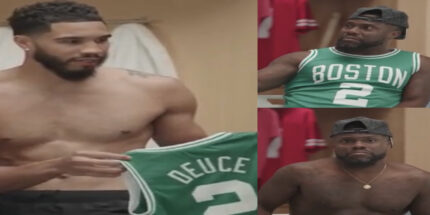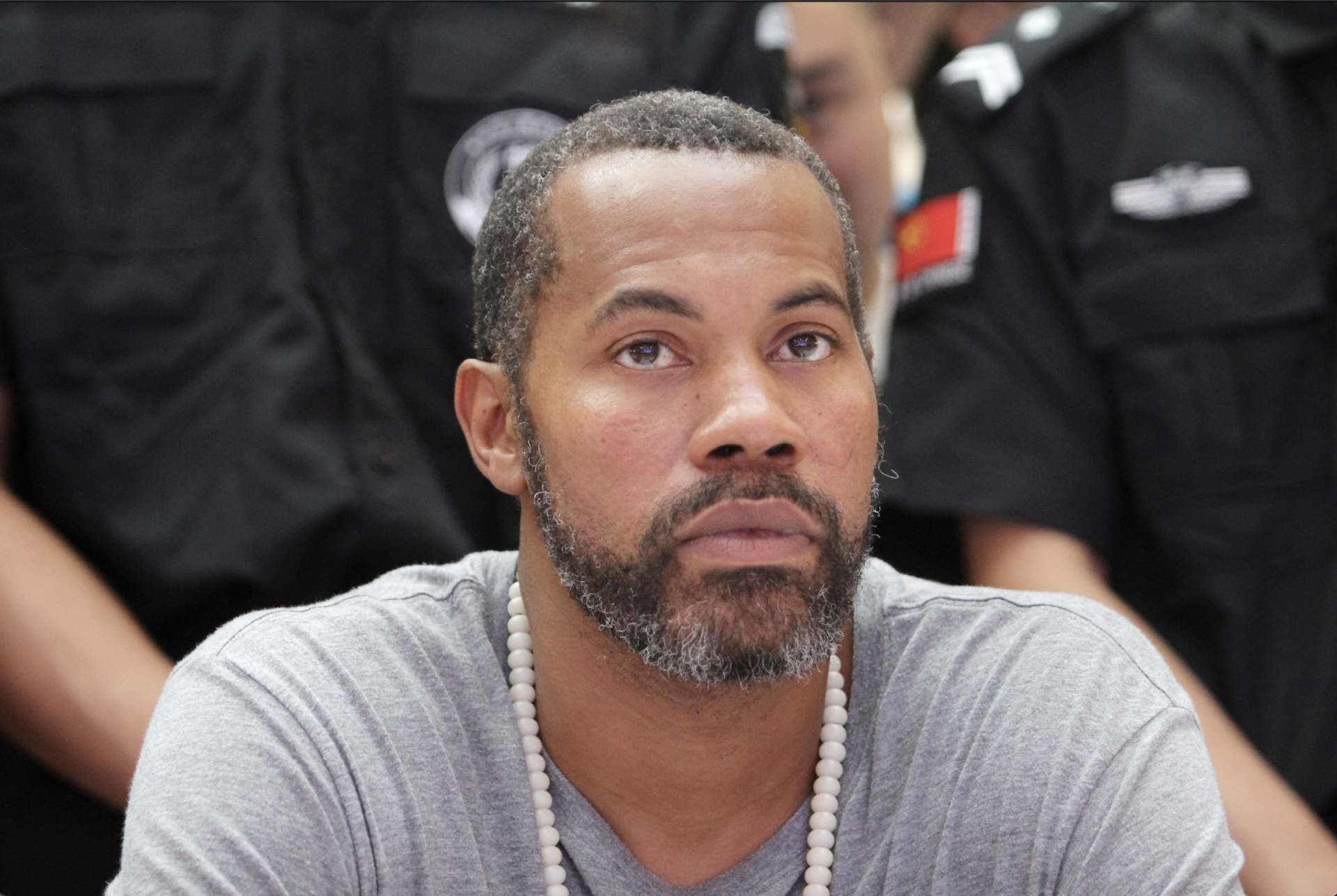Malcolm D. Lee’s movies have earned over half a billion dollars at the box office since 1999, and he’s really just getting started.
On the surface, Night School, directed by Malcolm D. Lee and starring Kevin Hart and Tiffany Haddish, looked like another silly, slapstick fest when the first trailers appeared last year.
However, once it hit theaters, audiences were treated to a surprisingly sincere film that dealt with the very real concerns of millions of adult Americans: undiagnosed learning disabilities and the shame they may cause to those afflicted by them.
Following some lukewarm initial reviews from critics, viewing audiences answered the call, pushing it to $77 million to date. That number is likely to go up with DVD/Blu-ray sales.
Recently, we had the chance to speak with Malcolm D. Lee regarding inserting the humanity into Kevin Hart‘s character, the criticism of black comedians once they garner success and the challenges facing black films that get little or no overseas distribution, among other topics.
The Shadow League: The humanity of Kevin Hart’s character, as well as the sincerity of much of the material in the film, came as somewhat of a surprise to many. Talk about that factor.
Malcolm D. Lee: We were hoping to have that. I try to do that in all my movies. Have a little bit of humanity when it comes to comedy. The more you care about these characters the funnier it will be.
You’ll be invested in the journey. I wanted to have some emotion. We’re not trying to make people cry, but when we were writing the script when I came on, co-writer John Hamburg and I tried to infuse that and have Teddy have an undiagnosed learning disability.
That happens, certainly happened back in the day and, conceivably it still happens today. He’s charismatic and charming, and used that to get over on his teachers and just got pushed through the system.
We’ve all seen those guys in real life and in school. We felt that he was someone Kevin could play and give the character a little bit of heart, so to speak.
TSL: Including Night School, your films have earned over half a billion dollars since the release of Best Man back in 1999. What does that mean to you?
Malcolm D. Lee: A). You wanna keep working. So if you exhibit box office success then they’re more likely to want to work with you again. Those numbers mean something, Girl’s Trip, Night School and certainly Best Man Holiday.
When this movie came out, people were excited about it.
They were excited about Kevin Hart and Tiffany Haddish going head to head. I think it’s a different movie for Tiffany because, unlike Girl’s Trip, she’s not the comedic fastball that she was in this film.
I think people were expecting something different when it came to her, and it’s a PG-13 movie as well while Girl’s Trip was R-rated. So you have a lot more leeway to comedy, the bawdiness and the language and whatever things you’re going to see or say.
I feel like this is very little testament to me and more a testament to the star power of Kevin and Tiffany, with me in combination, but definitely gratifying.
TSL: Of all the films in your catalog, only two have had measurable overseas distribution. That, in my opinion, greatly hampers overall income potential. What do you think?
Malcolm D. Lee: Back when The Best Man came out the Hollywood consensus was that film’s with predominantly African American casts don’t do well overseas, but we know that there are black people everywhere around the world.
I’ve heard from people who live in London, who live in South Africa, who live in Spain or wherever say ‘Oh my God, I love the Best Man!’ But you just don’t know that, especially 20 years ago, back then black film was kind of a niche business. Best Man Holiday proved that the movie went beyond African American audiences, even though that’s primarily who showed up.
Yeah, they could have done more of an international push, but I guess that wasn’t really the pervasive thought. Now, with Black Panther, Get Out and 12 Years a Slave, the business is like ‘Oh, wow! We can make money!’
Mind you, Black Panther is a Marvel movie. Those movies are going to do good regardless.
But the fact that it was so immersed in African and African culture, it’s so special that it translated like that across the world. I think as time goes on there’ll be more of foothold overseas, but it also depends on the movie.
They say comedy doesn’t translate very well, whether black or white. It’s all a self-fulfilling prophecy. If they say ‘Oh, it’s not gonna work’, then of course it’s not gonna work. You’ve got to try and make the effort.
Will Smith didn’t become an international star because he listened to what the studios were saying. He spent his own money, and got people to recognize who he was over in China and in Europe. Same thing about Chris Rock and Kevin Hart, they had to grow their international audience.
TSL: For the past two or three years, it seems as if black people rotate between hating Kevin Hart and hating Tiffany Haddish on a month to month basis, if social media is to be taken for face value.
Malcolm D. Lee: I don’t think that it’s just black people that do that. I think that there’s haters everywhere. People who feel like ‘Oh, they got an accolade or an accomplishment that I didn’t get. I came along too early. I’m funnier than he or she is! I deserve a shot and yadda, yadda, yadda.’
I think that it’s unfortunate but I think people inherently have that in them. I think it’s natural to be, I don’t want to say jealous or envious’, I just think that people covet, especially with social media, what they see as the glamorous life and all of the accolades.
But Tiffany and Kevin have worked extremely hard. They’ve had failures, they’ve had people tell them no. So, you know, now that there stars are shining so brightly, nobody knows or even cares to know about their history and a lot of times they don’t even care about it anyway. But that’s the way it is, unfortunately.
TSL: What can viewers expect from you in the coming year?
Malcolm D. Lee: I’m currently developing a pilot for NBC called “At That Age”. It’s a drama. Movie wise, I’m entertaining a number of projects to direct or produce hopefully in 2019. Uptown Saturday Night is still there as possible, there’s the romantic comedy ‘How to Fall in Love with Anyone’, there’s a film we’re adapting with Viola Davis, there’s a double dutch film we’re working on that’s in the same vein as Bring It On and Pitch Perfect. We got a lot things going on at my production company Blackmaled Productions.



